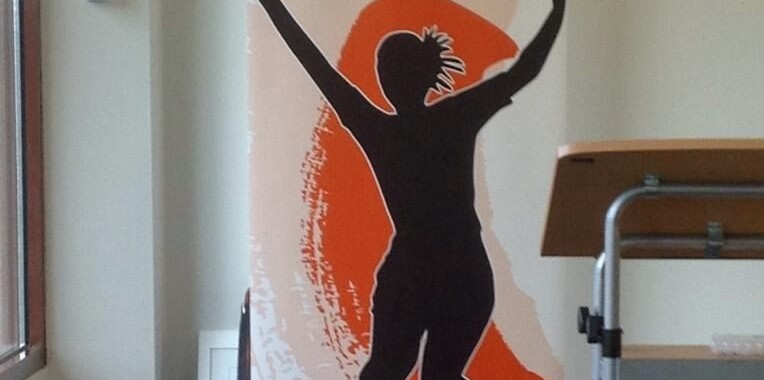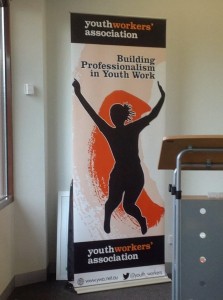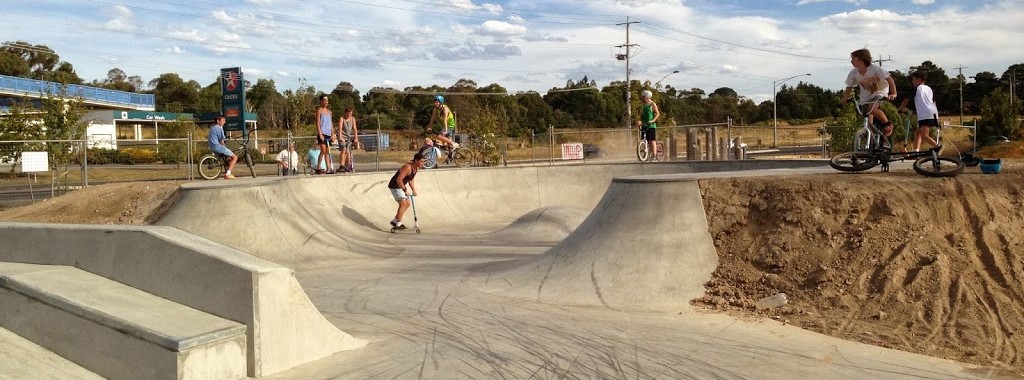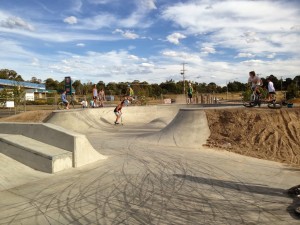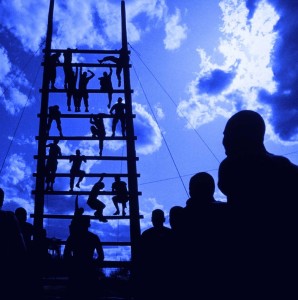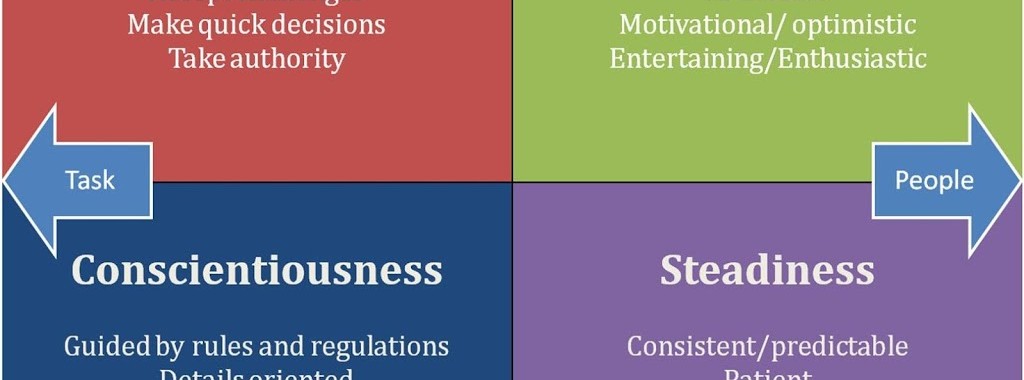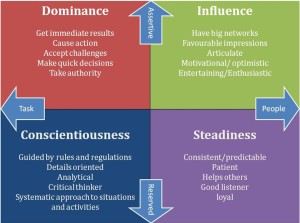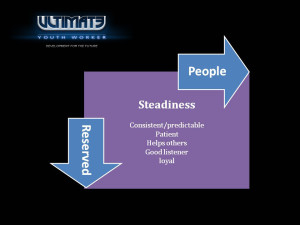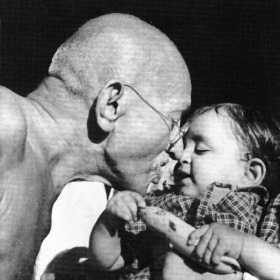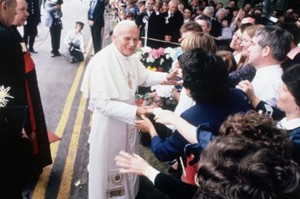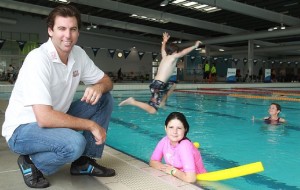Tag Archives: Youth Workers
At a number of conference we have presented at this year we have been asked by managers about how to implement our self care strategy with their staff and more widely in their organisation. As we have spoken with these managers we have come away with more of an understanding of the needs and difficulties they have in supporting staff to look after themselves.
We often hear that some workers do not want to look after themselves, that the organisations policies are vague about self care and most of all we hear that people just do not know where to start. It is a big job to change the values of an organisation. However as a wise man once said every journey begins with a single step.
When we have advise managers where to start we often state that it should happen in one-on-one meeting with their staff to go over the process we use for individuals. After they have met with all of their staff a team meeting is the next place to push the idea. However we have found that this often only works if your manager drives the process.
In 2014 we are launching a new service for organisations to help implement self care as a whole of organisation process. This can begin at a team level however the goal is to implement self care planning across the whole organisation. We look at policies and procedures, we provide a step by step coaching plan for the manager who wants to impliment this and we work with organisations to implement self care into performance management documentation as a way of holding everyone accountable for staff care.
We are currently putting together a white paper outlining why we believe this to be the biggest issue for youth work organisations at the moment and provide a more detailed outline of how we can support you to implement a whole of organisation self care strategy.
Developing a professional youth sector is harder than we first thought.
Today I was at the Annual General Meeting of the Youth Workers Association here in Victoria. It was a modest affair with about a dozen die hard youth workers attending of the over 400 members. The Association launched its objectives for the next three years and reading through it I pondered how the objectives would be met with only a dozen youth workers.
One thing holding the Association back was that those without a degree had limited voting rights, if any. This issue has been changed with a simple vote on changes to the constitution allowing those holding a two year diploma the ability to vote. We need to stop trying to keep people out and work out how we can bring the youth work family together.
For us to all work together will be difficult… but it is the only way we will be taken seriously. We have to stop our petty infighting and band together to change the sector for the better. Lets stop the fighting and stand together for the future we want to develop.
Passion needs to be tempered for effective youth work.
I was recently speaking to an organisation who were going to fire a youth worker. They had a list of grievances a mile long from inappropriate behaviour towards colleagues to inability to take constructive criticism. When I spoke to them about the behaviours it became clear that the behaviours were coming from an overly zealous youth work employee.
The employee had seen a number of issues in their place of employment and wanted them all fixed at once. He saw traumatic events being forgotten by other staff in their day to day work with highly traumatised young people. He pushed to forcefully for management to change procedures. He flaunted his knowledge in the faces of more experienced practitioners.
Sometimes when we see injustices, particularly if we are new to the sector, we forget that our passion can come across as arrogance. We get colleagues and service providers off side by our actions our effectiveness takes a massive hit. Most changes to entire sectors do not happen from the little guy in the field but by managers and policy makers at the top of the pile.
Passion is good, for the most part. It reminds us why we got into the work we do. Passion needs to be tempered by common sense. Otherwise we burn our bridges before they even get built.
Leave us a comment below or post a comment on facebook and twitter.
If you haven’t yet, sign up for our newsletter to find out all the goings on at Ultimate Youth Worker. (Sign up here)
Why so difficult: Understanding theory doesn’t need to be fear inspiring jargon.
I was speaking to some of my students recently about their time in the courses I teach in. Many of the student said the felt ill prepared and that they found that many of the teachers were hard to understand. When I delved into this it was that the teachers took pleasure in showing off their academic prowess and made everything seem really hard to understand. Many of the students still did not have a good understanding of basic theories and youth work practices as their teachers were speaking a whole other language…academic pomp.
In class this morning one of my students stated that I taught very different than her previous teacher. When I asked what the difference was she said that the teacher she previously had liked to talk on and on and delve deeply into a topic without making the basics understandable. After the first few classes she felt lost and every class after that compounded her feeling of being lost.
I asked what she liked about my style and she said she could understand what I was saying because I spoke in a way they could understand. I don’t use a lot of jargon when I teach. I can, but I was once told that the mark of understanding was the ability to distil knowledge to the lowest common denominator. If you can’t understand it is often because the teacher is making it too difficult.
When I was in high school I sucked at mathematics. I could not understand algebra or algorithims and every year I fell further behind. In year ten one of my teachers realised that I had missed the basics and this was what led to my lack of understanding here. She spent a number of weeks teaching me the basics and had me caught up and surpassing my peers in less than a term. The main thing was I needed the basics and I needed to understand.
No one fails my subjects through a lack of understanding. I teach as if I am explaining to a ten year old until my students get it and then I move on. If you struggle with youth work theory and practices it might just be that you were poorly taught. get back to basics and rid yourself of jargon and you will get passed the fear of theory.
You can also leave us a comment below or post a comment on facebook and twitter.
If you haven’t yet, sign up for our newsletter to find out all the goings on at Ultimate Youth Worker. (Sign up here)
Mental State Exam for youth workers: Insight and Judgement
We are finally here our series on mental state exams is in its last week. Over the past eight weeks we have built an understanding of the core components of a mental state exam so that we can support our young people as best we can. This week I was speaking with a youth worker in one of Victoria’s largest Christian denominations about a mental health conference he was at. I was reminded about how important it is for all youth workers to have a strong understanding of mental health. So far we have discussed how a young persons appearance, behaviour, speech and language, mood and affect, thought process and content, their perceptions and how their cognition can provide indicators as to their mental state. Today we discuss how a young persons insight and judgement can provide insight into their current mental health status.
Insight
A young persons insight into their own mental health and possible treatment options is key to the extent to which effective support can be provided. The young persons understanding of his or her mental illness is evaluated by exploring their explanation of the problem, and their understanding of the potential treatment options. The three main areas in which we need to be aware when assessing a young persons insight: recognition that they have a mental health issue, compliance with a treatment plan, and the ability to describe unusual mental events (such as delusions and hallucinations) as abnormal.
Insight is assessed on a continuum and therefore youth workers should not describe it as simply present or absent, but should descriptively assess the young persons ability. Impaired insight is characteristic of disorders such as psychosis and dementia, and is an important consideration in the development of treatment plans and in assessing the capacity of a young person to consent to treatment.
Mental health issues have become more frequently reported and diagnosed however the ability for many people including young people to accept that they have a mental health issue is still a concern. Insight is linked closely to cultural, religious and societal norms and these things should be considered while supporting a young person.
Judgment
When we are observing judgment it refers to the young persons ability to make reasonable, sound and responsible decisions. Contemporary use of this in a mental state exam asks us to inquire about how the young person has responded or would respond to real-life challenges and contingencies; for example, ‘What would you do if your mother stated that she thought you were depressed?‘. In this form of questioning we are looking to see if the young person is able to respond in a way that shows insight into their situation and possible next steps.
Assessment of the young persons judgement would include amongst other areas the individual’s executive capacity in terms of impulsiveness, social cognition, self-awareness and planning ability. If the young person appears to be providing abnormal judgement it is not necessarily a link to a mental health issue as it is not part of any diagnosis. However, if there is an impairment in judgement it may be an issue of safety for the person and the community.
———————————————————————-
Mental state exams are a skill that needs to be practiced and refined. The basic ideas that we have discussed over the past eight weeks are just that the basics. These tools will not make you a psychiatrist!!! If you believe that a young person is having some mental health struggles then you can use these tools to support your case.
Good luck. Use these tools wisely.
If you have any questions contact us.
Guest post on drownthenoise.wordpress.com/
Our guest post is being published on Neels Redelinghuys’ Blog today – it’s an open look at the situations that shape a youth worker through their career. Feel free to post in the comments about how witty, insightful and amazing it is!!!
If you’ve come to Ultimate Youth Worker after already reading the post on http://drownthenoise.wordpress.com/ – WELCOME!!! We hope you found it witty, insightful and amazing too!
We’re really glad you’ve come to check us out. Here’s a quick guide to us as a company:
Our Blog
You should already be on our blog page, so you can scroll down and read some of our recent posts. To see older posts, there are a few ways of doing this:
- Click on “older posts” at the bottom of this page
- Click on one of the categories on the right hand side of the page to read specific types of posts (e.g. professional identity, youth work, self care etc)
-
Use the “blog archive” on the right
Our Website
We are currently developing a website to showcase what we believe and what we do! Check us out
Connect with us!
We’d love to connect with you in the following ways:
-
Subscribe to receive our posts via email (you can do it on the right hand side of this post) – you’ll receive one email a week with that week’s post(s). Don’t worry, we’ll never spam you or sell your details.
-
Follow us on Twitter
-
Like us on Facebook
-
If you haven’t yet, sign up for our newsletter to find out all the goings on at Ultimate Youth Worker. (Sign up here)
Once again, thanks for visiting Ultimate Youth Worker! We hope you find some useful stuff on our blog. If you know any youth workers or youth pastors, we’d love for you to tell them about us – each week we provide a new post so keep on coming for more thoughts on youth work.
Become more than you are right now: A youth work specialist
As a parent I want to see my children have more opportunities than I did as a child. I want to see them become more than I became. I want to see them reach their fullest potential. As a youth worker I want to see the young people I work with reach their fullest potential as well. Becoming more than the sum of their parts. As a youth worker though, there was a time I was happy just to have finished my degree and been in a job I enjoyed. I did not want to grow, be challenged or reach for anything. I just wanted to sit still and ponder on reaching the top.
What I realised rather quickly was that you can never reach the top. Government policies change the landscape of practice. Our own yearnings lead us in new and undiscovered directions. Jobs that were around 10 years ago for youth workers do not exist now. We can not stop to long to smell the roses because the world will pass us by.
I have heard over the last year or so a number of youth workers express their satisfaction with where they are in their career journey. I must confess it worries me. It worries me to see 40 year old veterans still on the front with no leadership or mentoring responsibilities. It worries me to see people content to be generalist youth workers in a world of complexities. It worries to see degree qualified youth workers thinking they have reached the Utopian heights of education. In short I am worried about our profession.
Recently, the Victorian state government has stated that it will require minimum qualifications for youth workers in child protection. I think the idea of qualifications is great. What I do not like is the idea of minimums. They set the bar so low. It is an epidemic in the youth sector. Government, organisations and youth workers seem to set the bar extremely low. As a profession we rarely use words like excellence, outstanding or superior to describe our outlook. Imagine if a job advertisement asked for outstanding behaviour or superior qualifications, wouldn’t you be interested in looking a bit further???
I was speaking to a really passionate youth worker recently who was explaining that her work with young people experiencing issues with mental health was so rewarding but that sometimes the issues they were facing seemed to go beyond her skills. I asked if she had considered doing some more study like a grad cert in young people’s mental health or a bachelor of social work to gain some new skills. She bluntly replied that she was a youth worker and those courses would not be of help. It was if I had asked her to stop being a youth worker and become a monster instead. I often hear of youth workers who are counselling young people say that it is beyond them. Many of the youth work course that I know of have but one subject around counselling if at all. Yet when I ask if they would be willing to do a course or attend a few training sessions they can’t find the time. I once even heard a youth worker say that they would not do supervision with a social worker because they would not understand his practice.
In a world that is blurring the boundaries more and more we need to be fresh and up to the job at hand. We need more than a generalist youth work degree to get through the issues we are faced with. If we work in a clinical environment learn about it. If you work in the community, develop your understanding of community development. Do you counsel young people? Read something on narrative therapy or do a short course. We must become specialists in this new world of youth work. It is all well and good to do basic training, but you need your specialist skill sets to make it through the battle. We should all be generalists. But we should never stay that way.
What is it that your situation needs right now??? Counselling skills, supervision skills or maybe even community building skills. What does your next career step need? Management skills, financial skills perhaps even people development skills. When you think about the next 3 years of your career do you see yourself moving forward or do you see yourself doing the same thing? If you answered the same thing perhaps you need to think about it harder. Because the job you are doing now will not be the same in 3 years.
We need to step up or step off. If we step up we will be future focused and developmentally minded. If not, we should do everyone a favour and move on. The time for generalist youth work being the glorified mountain top is over. We are at the dawning of the age of the specialist youth worker. What will you specialise in?
If you haven’t yet, sign up for our newsletter to find out all the goings on at Ultimate Youth Worker. (Sign up here)
You can also leave us a comment below or post a comment on facebook and twitter.
What will youth work look like in 2013?
So Sam what will youth work look like in 2013?
Think of the future and I know I always end up thinking about what gadgets we’ll be using, the new technology on the horizon. And I’m sure I’m not alone in this- teens with their unparalleled appetite for the new will be too. With the most accessible bit of tech for teens being their mobile phones (or cell phones) and with their love for them, we can be sure that they are keenly watching for what 2013 brings to phones. So if their eyes are on their phones and what new thing they will be able to do with them, should we be looking at what we can do with them, with their phones in our youth work in 2013?
Teens and their phones
Teen ownership rates are continually rising with a 2012 American study showing that 23% of 12 to 17 year olds own a smartphone and another 54% owning a regular cell phone. Every day 68% of teens text, 51% visit social networking sites and 11% send or receive tweets (Common Sense Media 2012).
It probably goes without saying that in 2013 even more teens will be in possession of a mobile and will be using them to text, tweet or do whatever the latest thing is. But why should we as youth workers care about this?
More and more teachers and youth workers are adapting their work to embrace the teen love affair with their phones, rather than trying (and failing) to get them to switch them off. This is a trend that is bound to continue in 2013.
The social TV or ‘second screen’ concept is increasingly being used in sessions to change phones from being a source of distraction to a tool of engagement. So rather than young people using their phones to keep up with what is going on outside the session, they are being used to stimulate conversation on the session. So while watching something on a screen or watching a live in-person talk or presentation, young people are invited to submit opinions, questions and comments either by text or submitted on Twitter via hash tag to feed later discussion. This works really well to keep them on-topic, to get the verbally quieter ones contributing and to generally spark off debate.
‘Flash research’ is another application for phones in sessions. In the first ten minutes, groups go off and research the net, or text people they know to find information on a topic. So instead of youth workers bringing the ‘facts’ to the session (which always brings out the sceptic), young people show us what is relevant and important to them. This is hugely empowering for them as they feel they have a real voice and that a worker’s view or presentation of ‘facts’ doesn’t automatically trump theirs. The fact that they get to use their beloved phones also means that what might have been a relatively boring brainstorming exercise before becomes something of interest to them.
These are just two of many examples of using mobiles in youth work. The embracing of cell/mobile phones in youth work sessions is bound to continue and expand in 2013, probably in ways which we don’t even realise yet. If we fail to keep up, we do run the risk of offering sessions which do not maximise teen engagementas they lack the cultural relevance which is so important to teens, and they could walk away, declaring us out-of-touch dinosaurs.
Timeless ‘tones
However, when looking to the future, when trying to predict and stay abreast of change we always need to be careful not to lose sight of what is really important, the stuff that is at the core of our work. We should never forget the timeless qualities that outlast trends and changes in popular culture and that keep our work relevant whatever medium we use to deliver our message.
So in 2013, even with the expansion of mobile interaction, quality youth work should look very much like it has done in the past.
Relationship, not just interaction, will be key.
Social networking and technical gadgetry have been accused of causing an increase in interaction but a decline in real communication. While there are elements of truth to this, technology when used well, can enhance rather than degrade our communication with youth. It can complement what any good youth worker knows lies at the heart of good youth work- human connection of the face-to-face kind. Research shows that despite all the technological advances and the increased ownership of mobile technology, teens preferred method of communication is face-to-face.
So while youth work will involve more technical wizardry in 2013 we should also allow time and space for unmediated humanconnection. Particularly for those youth who are struggling with lack of personal connection with family members and other professionals, direct human engagement rather than technologically-mediated interaction can be vital.
And if our focus is on relationship it will mean that no-one gets left behind due to lack of ownership of the latest device (23% of teens do not have a cell phone at all). We will be mindful of trying to connect with everyone, whatever their circumstance, in the way that they need.
Helping our teens to think and communicate well will be at the heart of helping them succeed.
With the continual rise of texting, social networking and social TV in teens’ lives in 2013 it will become ever easier to shoot off opinions and statements with relatively little thought or reflection – their fingers often operating faster than their minds – and this can work against good thinking, good decision-making and good communication.
So we need to ensure that even when using the latest tools in our work, that we don’t get slack in helping them think and communicate well. We need to show them that text messaging and social media can be great conversation starters and can be a great way to get us thinking, but if we are to really communicate we will need to take more time to formulate opinions, to express them well, to really listen to others respectfully and to reflect, and that most of the time this happens when we actually take the time to really talk to people. Our sessions should never get carried away on a technological wave that forgets the core skills we need to help them develop if they are to successfully navigate through life.
So while 2013 may be technologically more advanced and our ways of connecting and engaging may expand we shouldn’t forget that good youth work was the same in the past as it is today and will be tomorrow. We need to keep mobile and current with our methods but always ensuring we have a strong signal from the good youth work base-station. No signal, no useful service. It was true in 2012 and will still be true in 2013 and beyond.
Bio:
 Sam Ross, popularly known as the ‘Teenage Whisperer’ is an expert in connecting with and helping the most challenging, disengaged and troubled teens to turn their lives around. She has worked in both educational and youth justice settings, both with young people and their parents or carers. Really understanding teens is the beginning, middle and end of her work and she helps professionals and parents achieve this through her website, providing advice, insight and resources: www.teenagewhisperer.co.uk You can also connect with her on Twitter: @Teen_Whisperer or Facebook: http://www.facebook.com/teenagewhisperer
Sam Ross, popularly known as the ‘Teenage Whisperer’ is an expert in connecting with and helping the most challenging, disengaged and troubled teens to turn their lives around. She has worked in both educational and youth justice settings, both with young people and their parents or carers. Really understanding teens is the beginning, middle and end of her work and she helps professionals and parents achieve this through her website, providing advice, insight and resources: www.teenagewhisperer.co.uk You can also connect with her on Twitter: @Teen_Whisperer or Facebook: http://www.facebook.com/teenagewhisperer How to encourage young people as a youth worker
One of the most enjoyable parts of being a youth worker is providing a measure of encouragement to our young people. Often the world sucks! Through broken people, the media and even their “friends” young people are attacked from all sides by people telling them how bad they are, that they are delinquent and even worse they are useless. Young people are behind the eight ball when it comes to developing their self-confidence and then society throws them under the bus to finish them off. No wonder our young people struggle to dream of a better future.
The difficulty with encouragement is that it is sometimes really hard to do! Some of our young people are a joy to be around and others take a lot of effort. Some of our young people are easy to encourage and for others it is like pulling teeth. When a top performing young person does their normal activity it is relatively easy to find something to encourage them about. When a difficult young person goes about their normal activity we want to take to them with a baseball bat… (or perhaps that’s just me). So how can we encourage our young people even when we want to murder them???
We need a framework! A tool for the job! And it just so happens that I have one for you that I picked up in 2004. I Was doing an internship with a great youth organisation here in Melbourne when we were taught this amazing little gem. I do not remember who they borrowed the concept from but it is awesome to use as a foundation for encouraging young people. It can take less than 10 seconds, is three sentences and works every time… WE GUARANTEE IT!!!
So what are the three sentences?
I saw what you did…
That makes me feel…
I see you becoming…
Lets spend some time and break this down for you.
-
I saw what you did… You need to observe a behaviour in your young people (However small it might be) and put it into words. It could be an interaction with another person, An action they don’t often do like cleaning up without asking or even not acting negatively when provoked. As long as you observed it and can articulate what you saw then you have completed the first step.
-
That makes me feel… I must confess this is the step I struggled with most, and still do sometimes (I am an emotionally stunted individual, at least that’s what my wife tells me when I have angered her). Once you have observed and articulated the behaviour you need to let them know how their behaviour has impacted upon you. Once again it doesn’t need to be monumental. I once told a young person that I was relieved that they hadn’t gotten into a fight with a half dozen other young people (I was in the middle of the group and saw my life flash before my eyes whilst a bright light emerged in front of me… I think I heard voices). Pick a feeling and let them know why you feel that way.
-
I see you becoming…The final step is to let them know that you are seeing a transformation. If their behaviour was a meaningless blip on the radar it will have little impact on them when you point it out. If however, the behaviour is a step in the direction of awesomeness that has a lasting effect. It shows that you see their behaviour as a step in a process rather than a one off brain fart in their otherwise perfect record of naughtiness. It also leaves a thought in the back of their mind about where YOU see THEM heading in life.
This framework is great to use with difficult young people because it guides you and you don’t need to struggle with what to say. But it works equally well with a good kid, a little old lady (Just don’t tell them you see them becoming worm food…apparently they don’t like to be reminded they are close to death. Who knew!) and even with your spouse. It doesn’t matter who you use it with, just that you use it. We all know that young people need more encouragement and often it just seems too hard. This tool provides the leverage you need to move towards a more encouraging youth practice.
Examples
-
A young person in Out of Home Care who usually turns every discussion into an argument or a physical altercation decides to walk away from another young person when their chat begins to turn ugly. You walk up to her and say… I saw you walk away from Sarah just then. When you take action to stop a fight like that I feel confidant that you are maturing. I see you becoming better at managing your emotions.
-
When I was a street drug and alcohol outreach specialist, I came across a young guy who was obviously hanging out for a hit. I had known him for a few months and was aware that he had little self control when it came to his drug use. As we spoke he stated that he had told his dealer that he was not going to use on the particular night because a friend of his had overdosed a year earlier. I said, “I can see that your choice not to use has caused you a heap of hurt and that doesn’t look like its going to let up. That makes me feel like your mate meant a lot to you and that when things mean a lot to you you will go the extra mile. I see you becoming a man who will put himself on the line for what he believes in”. He continued to use for just under a year but the work we did for that time was firmly cemented in his ability to choose the hard path and commit to it even if it hurt.
A challenge to end this post. Encourage at least one person every day!!! If you struggle with what to say use our framework. The point of the exercise is to just do it. Society is so stuffed up that any encouragement no matter how staged or poorly enunciated is gold. People will lap it up like they had never been encouraged before. If you got to here I know you want to encourage your young people. It warms my hear to know that you want to make your young people feel loved and supported. I see you becoming an ULTIMATE YOUTH WORKER!
If you haven’t yet sign up for our newsletter to find out all the goings on at Ultimate Youth Worker. The form at the top right of this page is all you need to do.
You can sign up to have our blog posts sent straight to your email by adding your email to the subscribe button on your right.
You can also leave us a comment below or post a comment on facebook and twitter.
Observe the S in DISC for youth worker’s
Over the past few weeks we have been looking at the DISC behavioural profile and its use for youth worker’s in developing relationships and networks. So far we have discussed the EXTRAVERTS of the group and we continue on with the PEOPLE focused groups today. This week in our Thursday Think Tank we continue with the third quadrant in the profile and an overview of the STEADINESS behavioural style.
STEADINESS is the nurturer of the bunch. The motherly figure. The thrive on small talk. They are the first people to ask you how you are going. They prefer to ask rather than tell. They love to listen rather than talking. They are the slow steady deliverers. Those that have a STEADINESS profile are often reserved and speak with a lower volume. These people will use first names and speak with a warmth that is genuine. STEADINESS behaviours tend to prefer speaking one-on-one rather than to a group. They speak calmly and methodically and are often seen as the steady ship when all around is chaos because they proceed carefully. These people often have photo’s all over their desk, are embarassed when praised but are the first to celebrate others and seem to be everyones friend. On the negative side they are often resistant to change, have difficulty prioritising tasks and sticking to deadlines. They struggle with systems and struggle with presentations and believing that their part in the grand scheme really is worthwhile. If these guys were a slogan they would be Optus: We hear you.
.
A person with a high level of STEADINESS in their profile speak rarely. They want to check on how a decision will affect others and are slow to impliment tasks particularlly if there is not a precedent. These folk are all about the story…all 18 volumes of it. They want to be part of the team and let everyone have a say. The saying you have two ears and one mouth so listen more than you speak was written by a high S. When they do speak though it is at a hundred miles an hour…they have a lot of ground to cover and not much time to do it.
It is hard to get a rise out of a high S. They epitomise the ostrich sticking their head in the sand. They shy away from any conflict as it goes against everything they stand for…Status quo and friends for all. They will rarely fight back, but if they do it is usually over the notions of justice and fairness. When they do fight back it is usually a quick explosion of how unfair an idea is and that as a person you are unfair because of your decision. It is also over as quick as they can make it happen as they want to get back to the way things were. Remember they are people persons.
Here are our top five tips for working with people with STEADINESS behavioural traits:
-
Be logical and systematic: These guys struggle with priorities and systems but they need to have a plan of action, otherwise they would spend all day around the watercooler or at a cafe chatting about your life. set clear boundaries and timelines for task completion.
-
Provide a secure environment: They do not like change! Make their environment as predictable as you can. Do not ask them to change thier password, move desks, do a rush presentation or lead a project that needs a quick resolution. Make them feel safe.
-
Tell them about change early: If there needs to be a change, pre-wire them early. Give them a heads up. Provide time for them to become comfortable with the idea of change. Walk them through it step by step and address their concerns.
-
Show how they’re important: If they do something great. Minimise your appreciation in public and be as sincere as possible in private. They struggle to feel their work is important so explain how they have made a difference.
-
Teach them shortcuts: If you let them run the show it will take two days to make a cup of coffee! The conversations will take up all their time. They want consensus and a clear picture of everything that needs to be done. The key thought here is do not make the perfect the enemy of the good.
Some well known high STEADINESS behaviour holders you may know and have seen.
Michelle Obama
Ghandi
Pope John Paul
Grant Hackett (Australian Swimmer)
Mother Teresa
